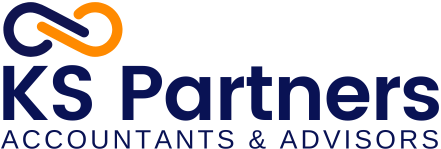Importance of Tax Planning…
Ensuring tax compliance and efficiency for family and business
As family business owners, the focus is often on maximising revenue and improving profitability, while the task of ensuring tax efficiency can sometimes be overlooked.
Navigating the complexities of Australian taxation law can be challenging, and expert advice is often needed to optimise your strategy and ensuring tax is managed efficiently.
Tax planning should be an ongoing proactive process, not just an annual compliance task. It should be reviewed regularly, considering changes in legislation, your business financial position, its structure, and your businesses and family strategic goals.
Here are five key considerations for effective tax planning, ensuring compliance whilst maximising your business and family tax efficiency:
Understand Your Current Position
A successful tax planning strategy begins with a clear understanding of where your family and business stand financially.
This includes reviewing your business and family’s financial and non-financial information, including, but not limited to:
Family considerations:
- Reviewing and setting your family goals
- Revisiting family estate planning matters including family governance documents
- Asset protection considerations and strategy
- Personal insurances review
- Wealth accumulation strategy and goals
- Superannuation considerations including contributions
- Considering to large once off transactions (either occurred or on the horizon)
Business considerations:
- Reviewing and setting your business goals
- Revisiting business succession planning matters
- Asset protection and business structure
- Business insurance review
- Analysing actual year-to-date financial performance and forecasts
- Reviewing key profit and loss and balance sheet transactions for opportunities
- Review key financer covenant reporting
- Reviewing key income tax opportunities i.e. utilisation of carry forward losses
- Ensure key 30 June decisions are made i.e. distribution decision by Trustee
- Calculate forecast taxable income and estimated future tax liability forecast
Having a clear picture of your personal and business financial position helps create a holistic approach to structuring your taxation planning, ensuring that strategies are tailored to maximise your wealth accumulation, protect your family and business whilst legally ensuring tax efficiency.
Stay On Top of Your Obligations
Tax planning is not something that should be addressed just once a year when filing your tax return. It’s an ongoing cycle that requires regular reassessment.
Tax strategies need to be maintained, adjusted, and monitored continuously to stay in line with changing tax laws and compliance requirements.
If not actively managed, tax obligations can lead to unexpected costs or missed opportunities.
Family business owners need to understand how tax legislation affects free cash flow, director liabilities and ultimately the after-tax return for your family.
Key areas to consider include:
- Trust distributions especially asset protection and compliance with section 100A
- Family remuneration through dividends or other income streams
- Related party loan management (Division 7A) matters, documentation and compliance
- Capital Gains Tax (CGT), including rollovers and small business CGT concessions
- Tax loss recoupment rules
- Small business concessions (e.g., full expensing for depreciating assets)
- Tax governance and process documentation
- ATO focus areas, including the Justified Tax program
- PAYG instalments and Single Touch Payroll (STPR) requirements
- Fringe benefits tax (FBT) and salary packaging
- R&D Tax Incentive eligibility
- GST obligations and compliance
- Transfer pricing and thin capitalisation rules (for international businesses)
If you need assistance in any of these areas, our expert advisers can help.
Strategies to Maximise Tax Efficiency
Other strategies for maximise you and your families tax efficiency, include:
- Superannuation contributions, including super guarantee obligations and super concession eligibility
- Expense cut-off and timing, ensuring appropriate accrual of costs to maximise income tax deductions
- Reviewing the recoverability of receivables and inventory
- Reviewing the carrying amount of inventory
- Trust distributions – ensuring Trustees make net income distributions before June 30 to avoid higher tax rates
- Trust distributions – ensuring all eligible beneficiaries are considered for net income distribution and Trustee decisions are further documented
- Capital Gains Tax (CGT) concessions for small businesses, which may allow for the deferral or exclusion of some capital gains
Think About The Future
When reviewing the legal structure of your business or family-owned assets, it is essential to plan ahead.
Ideally, the legal structure should be future proof, offering flexibility as your business and family evolve.
Considerations beyond tax efficiency include:
- Ownership and control
The legal ownership and control of the business and personal assets for you and your family.
Key Question: Who holds legal ownership of the assets, and how does the family manage them on a daily basis, including the process for passing them down to the next generation?
- Asset protection
The strategy of legally segregating valuable assets into separate legal entities or individuals which hold less risk to further protect those assets from potential creditors.
Key Question: What asset protection strategies are in place to safeguard business and family assets from potential creditors?
- Future business aspirations
The current legal structure should be adaptable to future transactions, such as future client engagement, debt financing, mergers, acquisitions, or expansion.
Key Question: What asset protection strategies are in place to safeguard business and family assets from potential creditors?
- Exit Strategy
Planning for the eventual sale, handover, or transition of the business should shape your structure to ensure tax efficiency and a smooth exit.
Key Question: Is the current legal structure designed for a smooth sale, transfer, or transition to new owners or family members?
Expert Guidance For You, Your Family and Your Business
Many accountants approach tax planning as a simple pre-30 June compliance checklist, formalising the process once a year between May and June.
This typically involves estimating tax liabilities, assisting with trust income distribution, and implementing strategies before the financial year ends.
At KS Partners Accountants & Advisors, we take a different approach. Our tax planning goes beyond the numbers – it starts with you.
We offer a truly full-service experience, combining tax compliance with strategic family and business guidance to protect your business, family assets, and legacy.
Partner with us to achieve your goals and aspirations with a tailored, proactive tax planning strategy. Contact us to explore how we can support your unique needs.






